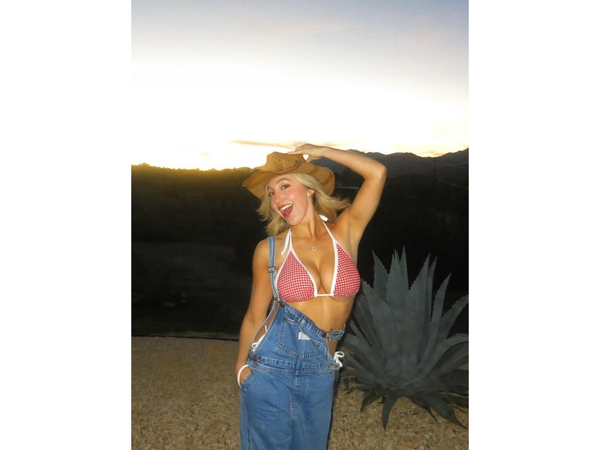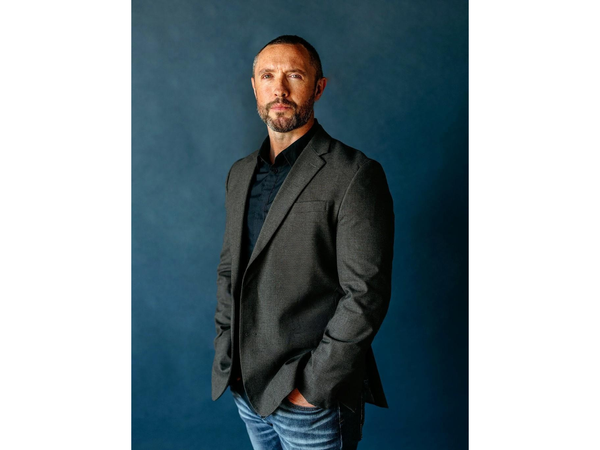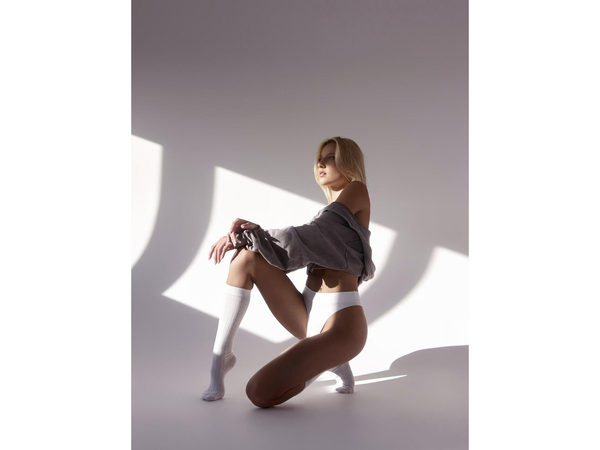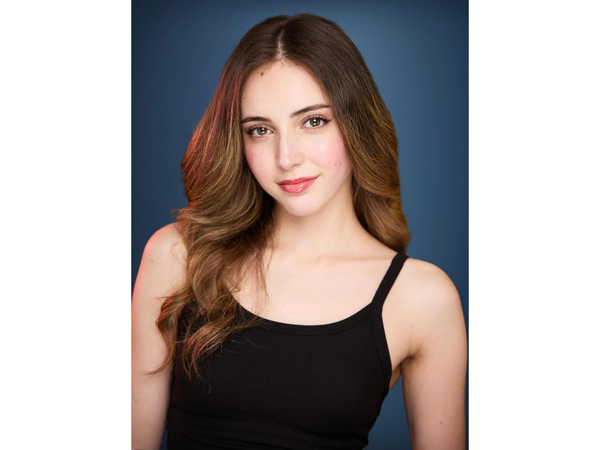MAKEZ RIKWEDA TALKS FAT GIRL
"Different generations has reacted differently"
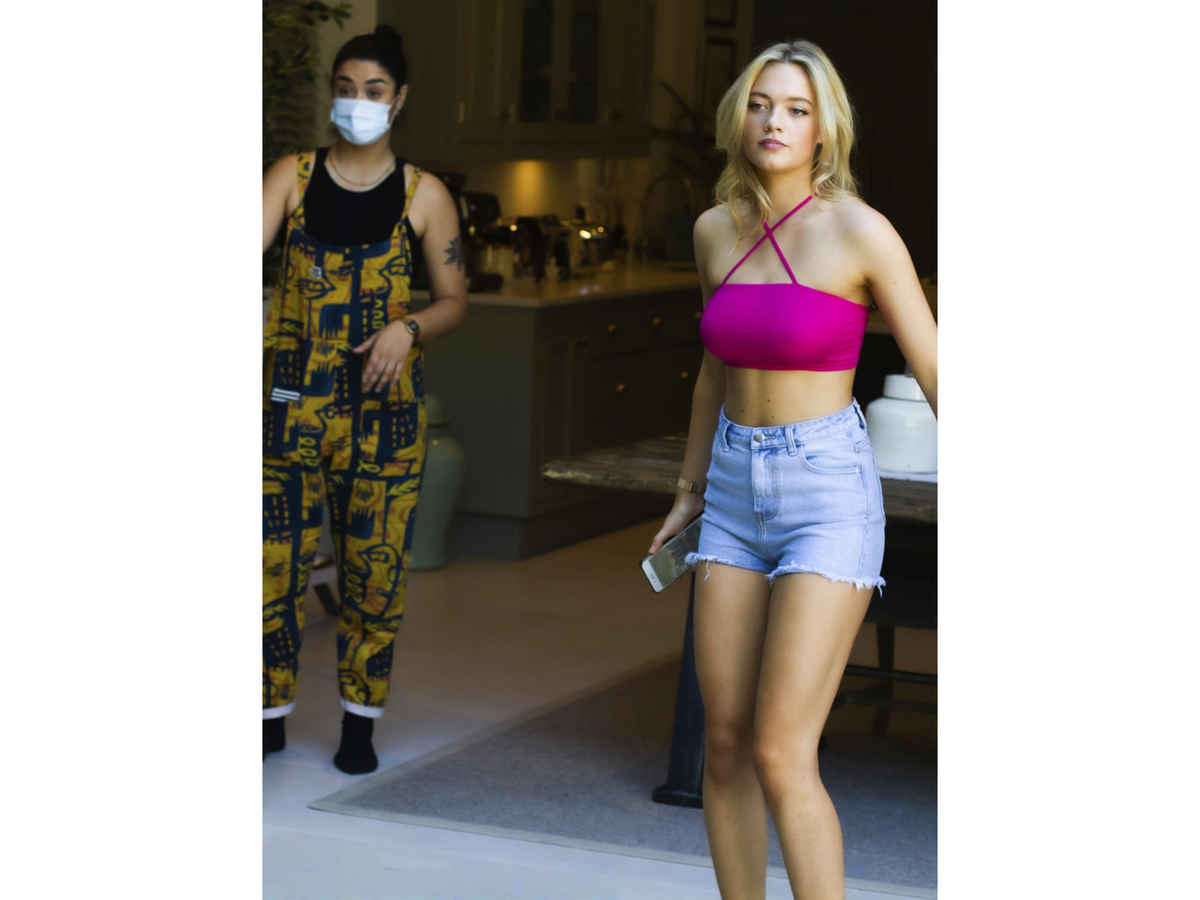
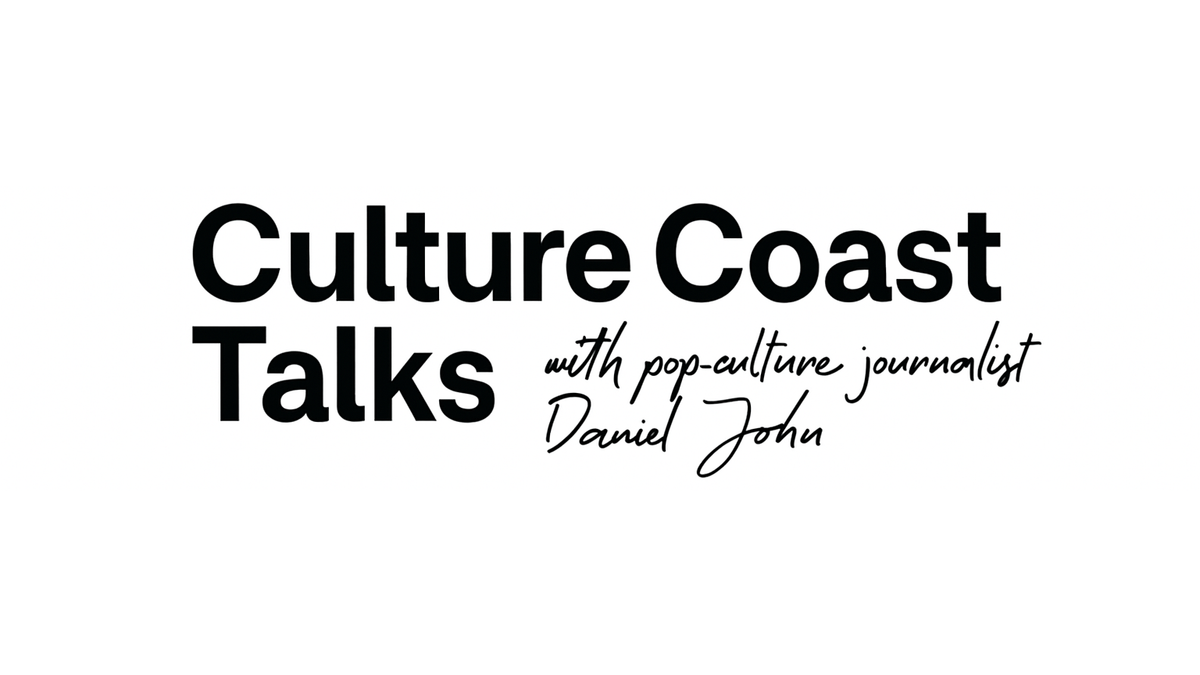
'Fat Girl’ follows a high-school teenager who becomes obsessed with being just like her favorite TikTok-influencer. Feeling not only like she wants to look and be like her but also like that in and out of itself is the answer to be able to live a happy life?
The idea came to me during the pandemic when I, like so many others, found myself on TikTok scrolling endlessly to kill the time and watching this whole new youth culture in fascination. At first it was very cute and escapist so I could definitely see the appeal. But then I started noticing the slow infiltration of a particular set of values, meaning making money at any cost, selling merch while preaching eco-messages, encouraging an obsessive fan culture and, most importantly, slowly justifying cosmetic-enhancements like botox, filler, nose jobs and lip jobs. I soon noticed there was this pattern, as soon as someone went viral on TikTok, which happened every other week, they would inevitably create a merch-line before embarking on some sort of cosmetic procedure which they then would justify to their fans under the guise of honesty, many of whom would seek to emulate.
Initially, I wanted to make this film about the pressure of perfectionism which the girls suffering from binge eating disorder experience and the chasm between their perceptions and reality. But then my younger Kylie Jenner-loving cousin attended a family-dinner in which her badly filled lip started to bleed all over the table and I realised that if girls could not get the expensive, legit stuff, they would resort to going to bad technicians and ordering cheap do-it-yourself-kits online in order to fit in with the new beauty standard. I started researching and found thousands of images of girls with blue lips and bust up faces. And the rest is history.
It’s quite a conversation starter. Though I imagine you have run into different opinions. Not least among the younger generations I guess one easily could be at risk of being the judgy older person?
(Laughs) Yes exactly. We didn’t want to be judgy, and our whole intention with Carly’s character was to show how someone like her could be so appealing while at the same time being genuine in her truth. As she says, "It’s your life and your body, so why not make a change if that will make you happy".
How have reactions been different across generations?
I do think different generations have reacted differently and in terms of Gen Z we had a massive response from young girls wanting to audition, in the hundreds, and they said the appeal of the film lay in the fact that it actually showed their lives and the issues they were dealing with. We also involved all three young actresses cast in reshaping the dialogue and scenes to make sure it was authentic to them and their language and lives. At the same time, it is undeniable that older generations have watched the film and seen it as some kind of horror warning to protect their kids from social media and its influences. I think the reality is there are some things to be concerned about, namely do we really want our young girls being told it's normal and desirable to want to change their faces to fit into some monolithic beauty standard, at such a young age, especially when we do not know the long term health consequences. That said, can we really take away a young person’s autonomy and choice if that is what they’ve decided they need to do to feel confident. I don’t really have an answer but I’m interested in raising the question.
How did you go about casting Stella and India for the parts. Both obviously being insanely talented, they also play on contrasts, and I can see India for example being cast due to some degree herself living that life?
For Lexi’s character, we had hundreds of applications, and probably ended up auditioning some seventy-five to one hundred girls via Zoom. As soon as Stella turned up, it was game over. She was so hauntingly talented, her eyes were so powerful and she was so bright that we all collectively knew it could be no one else. This film is actually her first ever acting job and, my god, is she going to be a star in the future. I can feel it. In terms of Carly, India was the first person we found for the film, one of the producers showed me her social media profile and I knew she would be perfect. She was gorgeous and already so social media savvy so we knew she had what it takes to convince an audience as an influencer, so I then messaged her incessantly till she replied and we had a call. That’s when I realised she wasn’t just beautiful but a multi hyphenate talent able to sing and act whilst also having the intelligence and ambition to truly own the role.
It’s kinda hard not to think of the ‘Barbie’-mania this summer, and how social-media just might be the Barbiedoll for a new generation of young girls. I guess it can be empowering, but it is still a product being sold, an ideal being established by pretty much the same marketing powers at be, which I guess is something we should confront?
Yes exactly. Lexi isn’t fat or ugly, she just feels that way and it’s that chasm between perception and reality in which the horror is allowed to seep in. Similarly, it’s undeniable that our perceptions are now heavily influenced by social media, which is both inescapable and can often lead to distortions, and your point about empowerment versus marketing also applies to the beauty question, is it empowered to change one’s face and body, is that agency, or are we really just falling for a new type of capitalist trap which is trying to convince us we’re not enough, with potentially toxic consequences.
While some of your earlier work also has had a hybrid, society-reflecting quality, this is your first non documentary, fictional, film?
I've been slowly moving away from documentary films. After making 'Only Voice Remains', which as you mention involved hybrid scenes of an actress playing the Iranian poet, Forugh Farrokhzad, I fell in love with the control and the artistry of fiction and the freedom it allowed as opposed to factual. After this film, I knew I wanted to cement my move into fiction and managed to get on a bespoke directing course funded by Channel 4 at the National Film School. I then did more training under Iranian auteur Mohsen Makhmalbaf. In 2020, I was ready to make my first proper fiction when the pandemic happened and suddenly I had the time and resources to actually do it and even better I could convince my film and television friends to get involved and help since we all were free. I was always interested in doing something stylistic and raw, with lots of music and colour and vibrancy. And then I discovered TikTok and knew I had the shiny vehicle I was seeking to tell this slightly darker story.
Did social media, itself, influence the film's aesthetics?
The style of the storytelling was set by the platform. When we are watching our phones and scroll on social media, we aren’t seeing it in 4:3, we are fully immersed in that world, hence why we shot Carly’s scenes in 16:9 which took some choreography between India and our director of photography. We also wanted to have a strong colour contrast between Lexi’s mundane grey-green reality and the acidic candy-coloured world of TikTok and Carly’s glossy life. That came about through interacting with the platform and understanding the aesthetic, language and fashion that came with that world.
You were only nineteen at film school?
Yes, at nineteen I did a summerdocs programme at the National Film and Television School. I was the youngest person they’d ever let onto the course and it was an incredible experience as I learned to shoot, produce and edit a documentary in six weeks. I then studied for a masters in journalism before working in twenty-four-hour-news and factual documentaries, which while being soul-breaking at times, certainly cemented my ability to communicate with people, to tell stories succinctly and to direct teams in the field. I’d also produce and direct my own independent documentaries and experimental films on the side as an outlet for my creativity.
What stories would you like to tell next?
In terms of stories I want to tell, I am very drawn towards those whose voices you do not traditionally hear in society and, in particular, exploring women in the throes of dilemmas and difficult choices. I’m also drawn to films which are stylistic and cool. I’m not interested in being worthy or sanctimonious. I wanna make films that set you on fire but are also poetic and layered enough to haunt you for days after. I’m also drawn towards POC narratives and representing issues authentically, free from stereotypes and colonial mindsets. For example it’s frustrating to see a film that I shot on the day the Taliban came back to power called 'Sound of the Birds', which I and every other diaspora person find so utterly moving and beautiful, dismissed by western commissioners and curators as esoteric whilst other obvious western-friendly narratives about Afghan women being oppressed by the Taliban, yet again, with no mention of the why, are doing so well on the circuit. That is also another reason as to why I am drifting towards horror for the next one and will never tell a story about Afghanistan until I can do it free from such constraints.
I’m actually in hibernation mode as I write a feature horror script, if any Swedish producers want to come on board, hit me up! Let’s set it in Sweden.

